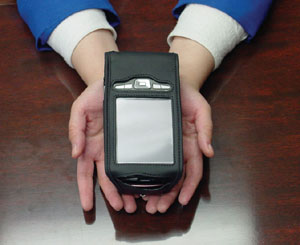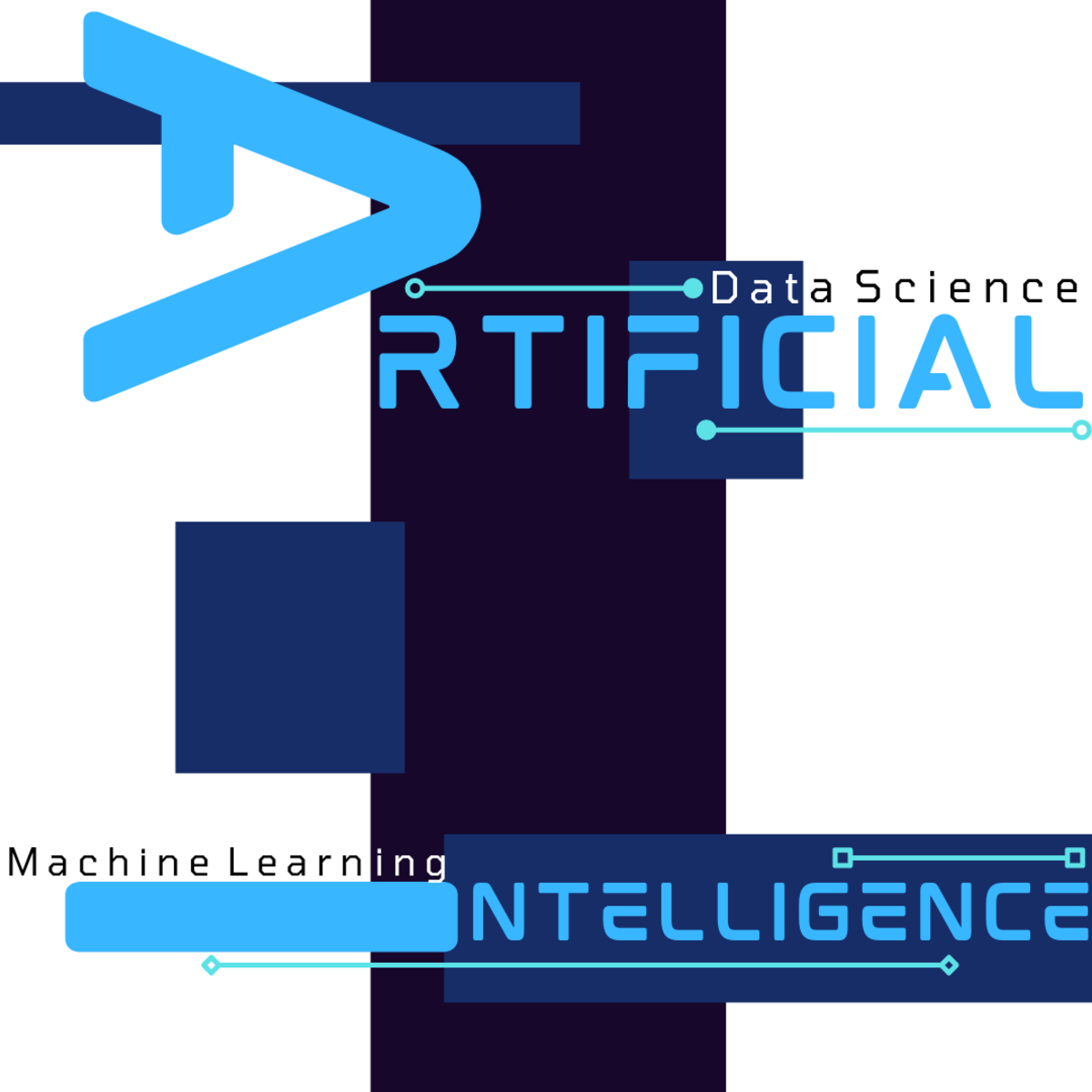Technology Change is Inevitable, Resistance is Futile

Are we headed into a Star Trek-like future?
If you asked my freshman-year college boyfriend, he would have told you he envisioned a mile-high and mile-wide cube city descending from the sky at some future moment in our lives. He really believed this. He was a little different. He was also a big Star Trek fan. I should know. Many nights when we didn't have homework, I would sit in the huge common area in his dorm watching episodes of Star Trek Next Generation with him and other Physics majors and their nerdy girlfriends (if they had girlfriends). I suppose that made me one of the nerdy girlfriends, too.
On that science fiction television program, dishy actor Patrick Stewart played Jean Luc Picard, the heroic space explorer who encounters the Borg. The Borg, as it so happens, are part humanoid and part machine, and they live in a hive-like fashion on huge cube-shaped space ships that are immensely powerful. The Borg are the Federation's most threatening enemy, for they devour and destroy whatever is in their path, like a swarm of locusts.
Jean Luc Picard Played by Patrick Stewart as Locutus of Borg
The Borg are simply a fiction, though an entertaining one. But they are interesting. I personally don't believe in a futurity that includes a mile-wide space cube, but I saw it on TV, and I'd like to address the Borg's most appealing quality amid their/its otherwise sinister character traits.
"Resistance is futile, you will be assimilated."
That's not quite right, I know I will offend some die-hard Trekkers here, but the quality I think we all need to take note of in the Borg is their supreme adaptability. The Borg capture their victims, erase their individuality, assimilate their victims' best technologies, and discard the rest. The Borg are mindless drones, but again, they are supremely adaptable.
An Information Tidal Wave
How much information will be available in 2, 6, 12, or 20 years? If technical information doubles every 2 years, see how much more information will exist in 20 years!
1. 2
2. 4
3. 8
4. 16
5. 32
6. 64
7. 128
8. 256
9. 512
10. 1014
11. 2028
12. 4056
13. 8112
14. 16224
15. 32448
16. 64896
17. 129792
18. 259584
19. 519168
20. 1,038,336
Notes on Adaptation...Darwin and Eugenics
My thoughts on adaptaption aren't particularly original. English naturalist Charles Darwin travelled thousands of miles on HMS Beagle to draw his own conclusions on the subject, and decided that those who adapt to their changing environments survive. This theory, called the Theory of Natural Selection, became the foundation of modern evolutionary theory. He wrote hundreds of pages coming to this conclusion.
But unlike Darwin, who lived in the 19th century during a time when information was limited to what a person could read in print and experience in person, we live in a society where technical information doubles every two years.
If that fact isn't mind-blowing in and of itself, think of its implications. If information doubles at the same rate for the next 20 years, we will have 1 million times the amount of information we have today. How old will you be in 20 years? I'll be only 55.
Change is happening at lightning speed, and we can't possibly begin to read all of even a small percentage of what is published about countless specialized subjects. Our ability to adapt becomes more important than ever.
__________________________________________________________
UNLIKE DARWIN, WE LIVE IN A SOCIETY WHERE TECHNICAL INFORMATION DOUBLES EVERY TWO YEARS
___________________________________________________________
Adapting and improving the human race through artificial means has been popular since the mid 20th century, when the concept of tinkering with nature took on less of a sinister Dr. Jekyll and Mr. Hyde quality, and improved in the public eye through the popularity of the eugenics craze of the early 20th century. This movement had its supporters in the intelligensia all over the world, but was abused by the Nazis and used to rationalize the Holocaust.
Even so, the Eugenics movement has only increased in popularity and sophistication. Research from The Human Genome Project, which has managed to create a map 20-25,000 genes in human DNA, took 13 years to complete, and had funding from the U.S. government, China, Japan, France, and Germany.
In our forseeable lifetimes, computers will have the ability to process information as faster than we can think, and with indepent reasoning ability.
We ARE Like the Borg, Sort Of
Humans are attempting their own adaptations to technology, with some similarities to the Borg. Think about these adaptations using technological and biological tools:
People in the West are increasingly using vitamins and health food supplements and stronger medications like steroids to increase their physical and mental performance. At first these things were used mainly by health food junkies, but more and more, people use these items to alter or enhance their mental and physical performance, in addition to improving their health. Who can forget those German Olympians who infamously increased their performance with the use of steroids? Other athletes aren't immune, either--the organizers of the Tour de France has recently increased mandatory testing of cyclists in this famous race due to performance enhancing drug abuses.
As healthy food comes into focus, the use of supplements and mindfulness around eating healthy, non-processed foods has moved from the fringe to the mainstream.
Prosthetics are another Borg-like adaptation. They have become increasingly sophisticated, too. Robotic arms and legs restore people's ambulation. Artificial hips and knees are so common that lots of people go through two or three in their lifetimes. Now, with the completion of the Human Genome project and the adaptation of biomedical research, synthetic organs like eyes, livers, and hearts aren't very far in the future. After my husband was diagnosed with a brain tumor the size of a golf ball, he now wears a digital hearing aid implanted directly into his skull. It is better than living with one ear. Locutus paved the way.
Plastic Surgery and cosmetic dentistry are examples of Borg-like adaptations that used to be available to only a few Hollywood elite. A beautiful white smile that replaces aging and coffee-stained teeth is just one example of an alteration to a person's physical appearance that can be used to enhance a person's chances for success in relationships and business. Cosmetic dentistry is simply Darwin's survival of the fittest hard at work.
And what about the tools we implant in our bodies to improve ourselves? My mother is only 56 and has had 2 pacemakers since she was 40. Her life has arguably been extended for years by this technology.
Then there are the gadgets we use to increase our performance in our day-to-day lives. How many people do you know who keep their cell phones, palm pilots, or fancy multi-function wrist watches on their selves at all times? Kids can now have their IPODs docked into their backpacks. How soon until these items can be directly plugged into their skin?
When I watched Star Trek in the 1990s, I thought it was an amusing diversion. But is it really a portent of things to come?


You Will Be Assimilated or...
Will you be replaced by a machine?
If, like the Borg, you can adapt to the tidal wave of information and the rapidly changing technology, you will be assimilated. This doesn't mean that you will lose your humanity, your creativity, or even your soul, but it does mean that you will not find yourself an obsolete relic in a quickly changing world. That is, IF you can adapt, my lovelies. Assimilation could be a good thing if it means avoiding obsolesence.
The Borg adapted the best technologies of its captives. We can, too. For example, who can argue that advances in technology haven't made life better for people with disabilities? New Kurzweil Readers for the blind break down barriers to their success, by enabling them to read printed materials without the assistance of a sighted person. The reader takes a photo of the print item that needs to be read, then uses optical character recognition technology to read the printed text aloud. This specialized tool is one of many technological innovations that assists humans with physical limitations.

Adaptation is the Key
With so many biological and technological breakthroughs happening ridiculously fast, it is imperative that we learn to adapt within our changing society. And more importantly, it means that we have to cultivate adaptability within our own lives and teach our children this important trait.
Does this mean that you HAVE to run out and buy a Bluetooth headset, an IPod, and a Wii game player? You probably already have.
But it does mean that we need to try new things and encourage our kids to try new things. And most importantly, we need to recognize that we live in a time of rapid paradigm shifts. For each technological revolution (and they seem to be happening continuously), we need to realize that our culture's key paradigms are going to rapidly change as well.
Related Topics
- Human Activity and the Un-inevitability of Technolog...
Technological change is guided, consciously or reflexively, by human action and value. Some thoughts after re-re-reading Lewis Mumford ideas on technological change. - Will Technology Create Real Superheroes and Supervil...
Current real life and under-development technology offers superhuman powers - so is the world ready for technology to create a real life superhero or villain?








